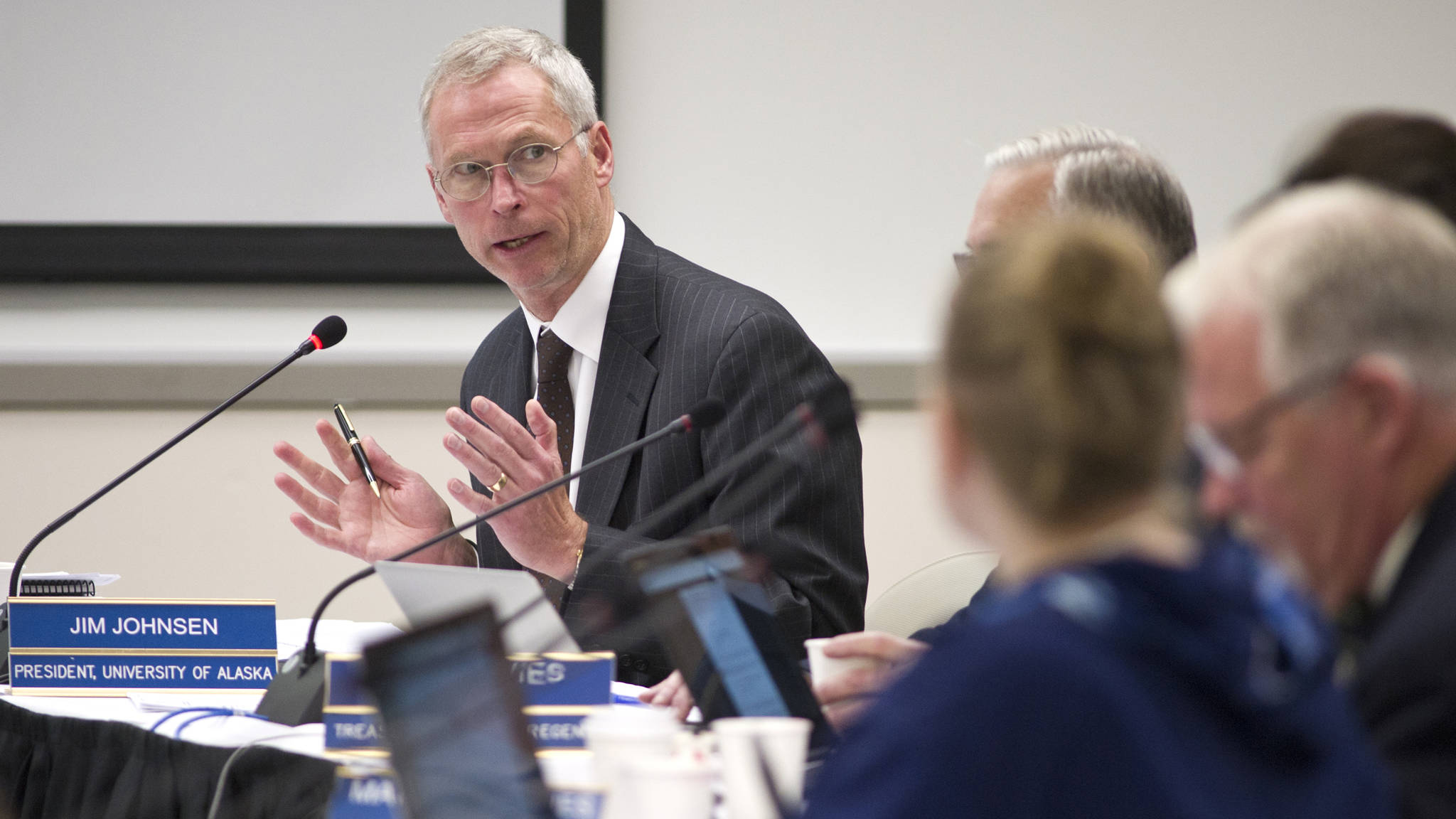Correction: The University of Alaska has 12 campuses across the state, not 33.
The University of Alaska Board of Regents is again asking for more money.
In its November meeting, which concluded Friday in Fairbanks, the group approved a FY2020 budget request of $358.5 million from the state of Alaska. While that’s $20 million less than the university system received six years ago, it’s $31.5 million more than the Alaska Legislature approved for the system’s FY2019 budget. In addition to that operating increase, the regents requested $50 million in the state’s capital construction and renovation budget.
The 2020 fiscal year begins July 1, 2019 and ends June 30, 2020.
About $7.2 million of that proposed increase will pay for higher salaries.
“Competitive compensation and benefits for our employees is extremely important,” UA President Jim Johnsen said in a prepared statement. “There’s not been a full court analysis of compensation and benefits in many years, and no salary increases in nearly three years. This undertaking is very important to the recruitment and retention of our most important and valuable university resource — our people.”
Another $1.8 million will pay for staff and resources to address sexual and racial discrimination within the university system, and $9.8 million has been earmarked for facilities maintenance.
Direct state support accounts for about 37 percent of the university’s entire operating budget. In the current fiscal year, that budget stands at $888.5 million, with $331.1 million coming from fees and tuition, $143.9 million coming from the federal government and $86.5 million coming from other state funds. The direct subsidy accounts for the rest.
In Juneau, the budget proposal calls for spending $525,000 of the proposed increase on the new College of Education. The money would establish an incentive program for new special education teachers, prepare teachers for rural schools, and hire a new faculty member for accelerated teacher-training programs.
Another $100,000 is planned for the University of Alaska Southeast Maritime Training center in Ketchikan. The money would hire a faculty member to teach engine room and power technology.
While the university’s budget has shrunk in recent years (the subject of cost-cutting efforts by the Alaska Legislature) lawmakers last year approved a $10 million funding increase, the first such rise since 2014.
Regents and other university officials have said that increase was helpful but insufficient to keep the University of Alaska competitive with other institutions across the country.
In particular, the university is concerned about the amount of deferred maintenance at its 12 campuses across the state. More than $1 billion worth of maintenance projects has been postponed as a cost-savings measure.
In addition to the $31.5 million operating budget increase, the university system is requesting $50 million to take a bite out of that backlog.
The regents’ budget proposal now goes to the governor’s office for inclusion in the governor’s budget proposal. The governor may choose to edit the proposal or pass it on to legislators for their consideration. The Alaska Legislature has the final word on budgeting.
• Contact reporter James Brooks at jbrooks@juneauempire.com or 523-2258.

